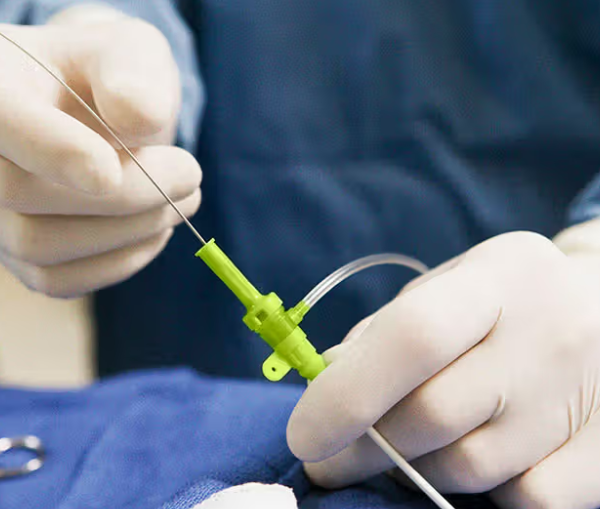Cardiac Catheterization Treatment in Hyderabad
Cardiac catheterization (kath-uh-tur-ih-ZAY-shun) is a test or treatment for certain heart or blood vessel problems, such as clogged arteries or irregular heartbeats. It uses a thin, hollow tube called a catheter. The tube is guided through a blood vessel to the heart. Cardiac catheterization gives important details about the heart muscle, heart valves and blood vessels in the heart.
During the procedure, a doctor can test the pressures in the heart or do treatments such opening a narrowed artery. Sometimes a piece of heart tissue is removed for examination.
Usually, you are awake during cardiac catheterization but given medicines to help you relax. The risk of major complications is generally low.
Some medicines may need to be temporarily stopped before cardiac catheterization. For example, your doctor may tell you to briefly stop taking any blood thinners, such as warfarin (Jantoven), aspirin, apixaban (Eliquis), dabigatran (Pradaxa) and rivaroxaban (Xarelto).
Food or liquids in the stomach can increase the risk of complications from medicines used to put you in a sleep-like state during the procedure.

Cardiac Catheterization Treatment in Hyderabad
Cardiac catheterization (kath-uh-tur-ih-ZAY-shun) is a diagnostic and therapeutic procedure used to identify and treat various heart and blood vessel problems, such as clogged arteries or irregular heartbeats. It involves inserting a thin, hollow tube called a catheter through a blood vessel and guiding it to the heart.
Cardiac Catheterization Treatment in Hyderabad provides valuable insights into the condition of the heart muscle, valves, and coronary vessels, enabling timely and effective care.
During the procedure, doctors can measure pressure inside the heart, open narrowed arteries, or even collect heart tissue samples for further examination. While you’re typically awake, sedatives are used to help you relax.
To minimize risks, medications such as blood thinners may need to be paused beforehand, and fasting may be required. With expert care and advanced technology, this procedure remains a safe and effective option for many cardiac patients.
Why it’s done?
Cardiac catheterization is a common method to diagnose or treat a variety of heart problems. For example, your doctor may suggest cardiac catheterization if you have:
- Irregular heartbeats, called arrhythmias.
- Chest pain, called angina.
- Heart valve problems.
- Other heart problems.
- Congenital heart disease.
- Coronary artery disease.
- Heart valve disease.
You might need cardiac catheterization if you have, or your doctor thinks you have:
Damage to the walls and inner lining of tiny blood vessels in the heart, called small vessel disease or coronary microvascular disease.
Explore More : Electrophysiology Studies (EPS) in Hyderabad
